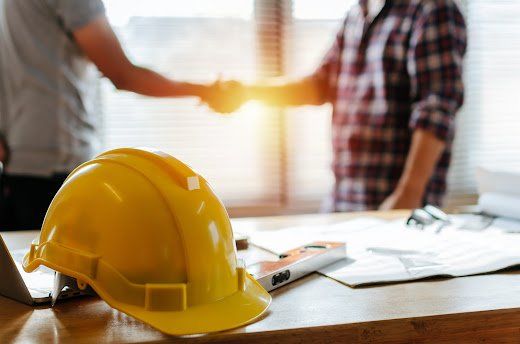3 Accidents Excavation Workers Face

Construction workers face exposure to many different injuries, depending on the nature of their worksites. For example, an excavation worker may face injury risks that an office worker might not face. Read on to learn about three accidents that might affect workers on excavation sites.
1. Collapse
Two forms of collapse can occur. The first is the collapse of the excavation sides, which construction workers also refer to as a cave-in. Cave-ins are dangerous because they occur too fast for workers to move out of the way. Cave-ins deposit heavy materials on workers, which can lead to fractures, lacerations, and suffocation.
The risk of excavation collapse is high if:
- The excavation does not have adequate wall support
- The excavation walls do not have adequate slope
- The ground is naturally unstable at the excavation site
The second is the collapse of nearby structures. For example, excavating near a building can cause the wall to collapse and fall on the excavation and workers. Such an accident might occur if the nearby structure is weak, if the ground is unstable, or if the excavation is too near the structure.
2. Falls
Construction workers also risk injuries from different types of falls. Some of the fall accidents to worry about include the following:
Materials
Excavation does not have to collapse for it to cause direct injuries. Materials from the excavation sides can also fall on workers inside the trench. Those who work inside deep trenches are susceptible to such injuries. For example, a rock can dislodge from an excavation wall and fall on a worker, causing devastating injuries.
Equipment
Excavation equipment and tools can also fall on and injure workers. Heavy machinery, such as excavators, and small tools, such as shovels, can cause injuries. A small object can cause serious injury if it falls from a great height.
Such injuries are highly likely if intoxicated, exhausted, or inexperienced workers handle the tools and equipment. The risk of falling tools and equipment is also high if site workers do not follow applicable work guidelines.
People
Falling workers can suffer injuries or cause injuries to other people. For example, a worker can slip and fall onto a colleague inside a trench, causing both suffering injuries. Again, exhaustion and intoxication raise the risk of such injuries. For example, a dehydrated worker might experience dizziness and fall into an open trench.
3. Utility Accidents
Many utilities run underground, which means excavation can easily disturb or damage the utility lines. Some of the utility accidents to worry about include the following:
Electrocution
Electrocution can occur if excavation damages underground electrical lines. Electrocution risk is even higher if the excavation site is wet or flooded since water conducts electricity. Workers without insulating gloves or those with sharp tools, such as pitchforks, are particularly vulnerable to electrocution.
Explosions
Explosions occur if an excavation releases explosive gases and something ignites them. For example, damage to a gas line in the presence of an electrical spark can cause an explosion.
Flooding
Flooding can occur if the excavation damages water or drainage pipes. The risk of flooding is high with deep trenches and main water or drainage pipes. Damage to drainage or sewer pipes carries the added risk of pathogen exposure, leading to infections even days after the incident.
Inexplicable accidents sometimes occur even when employers deploy the best safety measures. Employees who suffer injuries on excavation sites deserve workers' compensation benefits, just like other injured employees. Contact Borbi, Clancy & Patrizi, LLC if you have suffered such an injury. We will review your case and help you pursue the compensation that you deserve.
